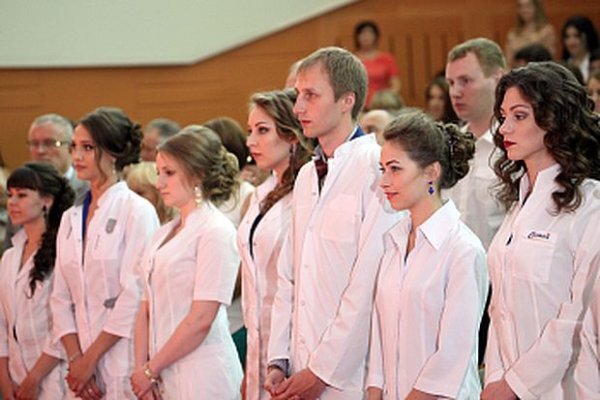A doctor who has obtained his or her education outside the EU has difficulty accessing the labor market not only in Slovakia but also in any other EU member state. He or she must first go through the process of recognizing educational documents, then pass a additional exam, and must be proficient in the language of the country in which he or she plans to start professional practice. All three conditions are logical and aimed at ensuring that patients receive high-quality medical care. Each EU state chooses its own way to implement these common rules, and I cannot understand why Slovakia has complicated this process for itself.
For example, in the neighboring Czech Republic, the recognition of diplomas is perfectly handled by medical universities, which have a system in place to help them review the application in close cooperation with the applicant. Here is an example of Charles University, whose rector issued Regulation No. 38/2017, which includes a table with the minimum number of hours in certain subjects.
For example, in the neighboring Czech Republic, the recognition of diplomas is perfectly handled by medical universities, which have a system in place to help them review the application in close cooperation with the applicant. Here is an example of Charles University, whose rector issued Regulation No. 38/2017, which includes a table with the minimum number of hours in certain subjects.

Source: (https://cuni.cz/UK-8289.html).
This is a very simple thing, but it can help a foreign doctor to understand whether his or her education really meets the minimum requirements. Unfortunately, such a document is not available in Slovakia, and then even those who do not meet the minimum conditions, such as holders of diplomas from the Soviet Union, when pediatrics did not have a form of state examination, try to have their diplomas recognized. They spend their money on fees, as well as the time of civil servants who deal with this.
Recognition of education (diploma) in Slovakia is carried out by the Ministry of Education, which is only an intermediary between the applicant and the chosen medical university. The process is as follows: The Ministry of Education accepts the application and sends it to the selected medical school, which has no direct contact with the applicant. In practice, this often looks like a hot potato transfer without close cooperation with the applicant. If the applicant accidentally wants to know the status of his/her application, the Ministry of Education will reply that the university has not yet responded, or that the university has responded negatively, so your application is rejected. We are sorry. If the applicant contacts the university, they say that they cannot provide information because the applicant is the Ministry of Education, and everything must be resolved through them. Even an appeal - and they will contact the university.
The Ministry of Education defends itself by saying that it handles all regulated permits, including medical professions. The unregulated ones are handled by universities. The only question is whether, given the shortage of medical professionals, the “Berlin Wall” system, i.e., no one can pass through, is logical and whether it is time to reconsider it. After all, the ministry is obviously not able to answer specific questions from applicant doctors, and the answers to these questions would facilitate the process of recognizing the education of foreign doctors. I know of a case of a doctor with a residence in Košice who was solving the recognition of his diploma at the Ministry of Education in Bratislava for an incredible 2 years. No doubt, it would have been easier for him to do it at the Pavol Josef Šafárik University in Košice.
The recognition of education is followed by a professional exam in Slovak, and to pass it you need a very high level of language skills and preparation in the style: you have to know everything, so you don't need exam questions. The reading list is published and it includes books in Slovak and Czech. Therefore, after studying the literature, candidates will have a perfect command of not only Slovak but also Czech. The professional exam is organized by medical faculties, and therefore the first contact with the recognition of education would undoubtedly contribute to mutual understanding.
The proficiency exam is followed by a language exam for knowledge of the Slovak language, and it is the responsibility of the Ministry of Health. Why does the Ministry of Health conduct the language exam? Are they language experts? Why does something like this exist after passing the professional exam in Slovak? The only reason that comes to mind for a thinking person is probably this: so that Ms. Minister can say: “In May, we had four language exams. The pass rate was 100 percent.”
This is a very simple thing, but it can help a foreign doctor to understand whether his or her education really meets the minimum requirements. Unfortunately, such a document is not available in Slovakia, and then even those who do not meet the minimum conditions, such as holders of diplomas from the Soviet Union, when pediatrics did not have a form of state examination, try to have their diplomas recognized. They spend their money on fees, as well as the time of civil servants who deal with this.
Recognition of education (diploma) in Slovakia is carried out by the Ministry of Education, which is only an intermediary between the applicant and the chosen medical university. The process is as follows: The Ministry of Education accepts the application and sends it to the selected medical school, which has no direct contact with the applicant. In practice, this often looks like a hot potato transfer without close cooperation with the applicant. If the applicant accidentally wants to know the status of his/her application, the Ministry of Education will reply that the university has not yet responded, or that the university has responded negatively, so your application is rejected. We are sorry. If the applicant contacts the university, they say that they cannot provide information because the applicant is the Ministry of Education, and everything must be resolved through them. Even an appeal - and they will contact the university.
The Ministry of Education defends itself by saying that it handles all regulated permits, including medical professions. The unregulated ones are handled by universities. The only question is whether, given the shortage of medical professionals, the “Berlin Wall” system, i.e., no one can pass through, is logical and whether it is time to reconsider it. After all, the ministry is obviously not able to answer specific questions from applicant doctors, and the answers to these questions would facilitate the process of recognizing the education of foreign doctors. I know of a case of a doctor with a residence in Košice who was solving the recognition of his diploma at the Ministry of Education in Bratislava for an incredible 2 years. No doubt, it would have been easier for him to do it at the Pavol Josef Šafárik University in Košice.
The recognition of education is followed by a professional exam in Slovak, and to pass it you need a very high level of language skills and preparation in the style: you have to know everything, so you don't need exam questions. The reading list is published and it includes books in Slovak and Czech. Therefore, after studying the literature, candidates will have a perfect command of not only Slovak but also Czech. The professional exam is organized by medical faculties, and therefore the first contact with the recognition of education would undoubtedly contribute to mutual understanding.
The proficiency exam is followed by a language exam for knowledge of the Slovak language, and it is the responsibility of the Ministry of Health. Why does the Ministry of Health conduct the language exam? Are they language experts? Why does something like this exist after passing the professional exam in Slovak? The only reason that comes to mind for a thinking person is probably this: so that Ms. Minister can say: “In May, we had four language exams. The pass rate was 100 percent.”
Suggestions
I propose that the departments exchange powers so that each is responsible for what it logically decides:
I propose that the language exam could be the first step towards the recognition of qualifications or be completely canceled as unnecessary.
I propose that minimum requirements for educational recognition be established and made available to those interested.
- Recognition of education should be transferred to the medical faculties of universities, or to the Ministry of Health.
- The language exam should be under the jurisdiction of the Ministry of Education, or language schools should be in charge of it.
I propose that the language exam could be the first step towards the recognition of qualifications or be completely canceled as unnecessary.
I propose that minimum requirements for educational recognition be established and made available to those interested.
Current articles by Alona Kurotova are also available at dennikn.sk





